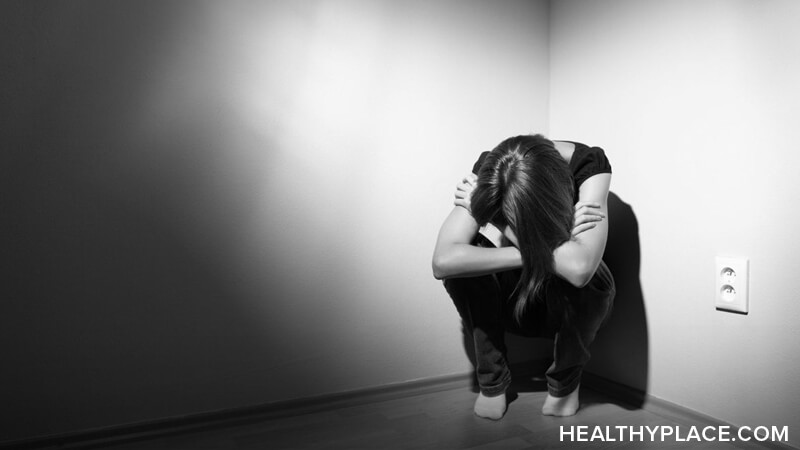Reclaiming My Tears Feels Cathartic in Eating Disorder Recovery

Before I chose to start the journey of freedom from my eating disorder in 2017, I took it as a source of pride that I rarely shed tears or expressed vulnerable emotions. The sheer fact I was able to count on one hand the number of times I cried in a 10-year period felt like a badge of honor. I feared the consequences of vulnerability, assuming any crack in my hard, stoic exterior would leave me open to rejection or betrayal. But underneath this tough shell of self-protection, there's always been a sensitive, compassionate soul with emotions that run deep and tears that ache to flow. Reclaiming those tears now feels cathartic for me, and I think it's important to name this as part of my healing process.
The Mental and Emotional Catharsis of Reclaiming My Tears
I used to believe the societal misconception that crying reveals weakness, and emotional detachment fuels resilience. While I no longer accept this narrative, it still took years to feel comfortable and secure enough not to hold back my own tears. As recently as last week, however, it occurred to me just how liberating it is to cry without shame—to welcome emotions in real-time, rather than policing them into indifference or repression.
Granted, in this particular instance, my tears were provoked by fictional characters and storylines on the TV show Lost (i.e., not actual life events). But nonetheless, that outward physical release felt like a restorative cleansing of my insides. As I've since come to realize, tears can have a profound, meaningful impact on mental health as well.
Crying eliminates toxins and stress hormones from the body while activating oxytocin and endorphins in the brain. These neurotransmitter chemicals help to stabilize the mood, promote emotional regulation, and reinforce attachment behaviors such as empathy and social bonding.1 In my own life, this sense of catharsis also helps to reduce the manifestation of anxiety—otherwise known as the main culprit behind my eating disorder spirals.
The more emotional freedom I allow myself, the less urgent it feels to tamp down my sensitivities or lean on my defense mechanisms. Now instead of craving emptiness in my stomach and numbness in my mind, I am not afraid to spill some tears, so healing can take its course. As simplistic as it sounds, this vulnerable act of reclaiming my tears is such a cathartic part of eating disorder recovery. It makes me feel brave, whole, tender, alive, and reconnected to myself—I will choose those traits over fear, repression, and stoicism anytime.
Reclaiming Tears Is a Cathartic Part of Eating Disorder Recovery
Do you agree that it's important to feel, express, and honor your emotions on the outside? Has the act of reclaiming your tears been cathartic for you in eating disorder recovery? Please share your thoughts and experiences in the comment section below.
Source
- Gračanin, A., et al., "Is Crying a Self-Soothing Behavior?" Frontiers in Psychology, May 2014.
APA Reference
Schurrer, M.
(2021, June 25). Reclaiming My Tears Feels Cathartic in Eating Disorder Recovery, HealthyPlace. Retrieved
on 2025, December 3 from https://www.healthyplace.com/blogs/survivinged/2021/6/reclaiming-my-tears-feels-cathartic-in-eating-disorder-recovery
Author: Mary-Elizabeth Schurrer
This is such a beautiful realization to make (and so wonderfully expressed): "it occurred to me just how liberating it is to cry without shame—to welcome emotions in real-time, rather than policing them into indifference or repression." There truly is so much to be said for fully allowing our emotions in real-time, not when it's suitable to our schedule or when we think is a "better" time for that kind of thing. There is such a wonderful connection between our emotions and our ability to embrace them, and the vulnerability that often comes with them.
Hi Lizanne,
Thank you so much for those insightful words. I wholeheartedly agree that, all too often, we only permit ourselves to show emotion when it feels convenient or when there's minimal risk involved. But you are so right—emotional connection and vulnerability can be crucial pathways to healing.